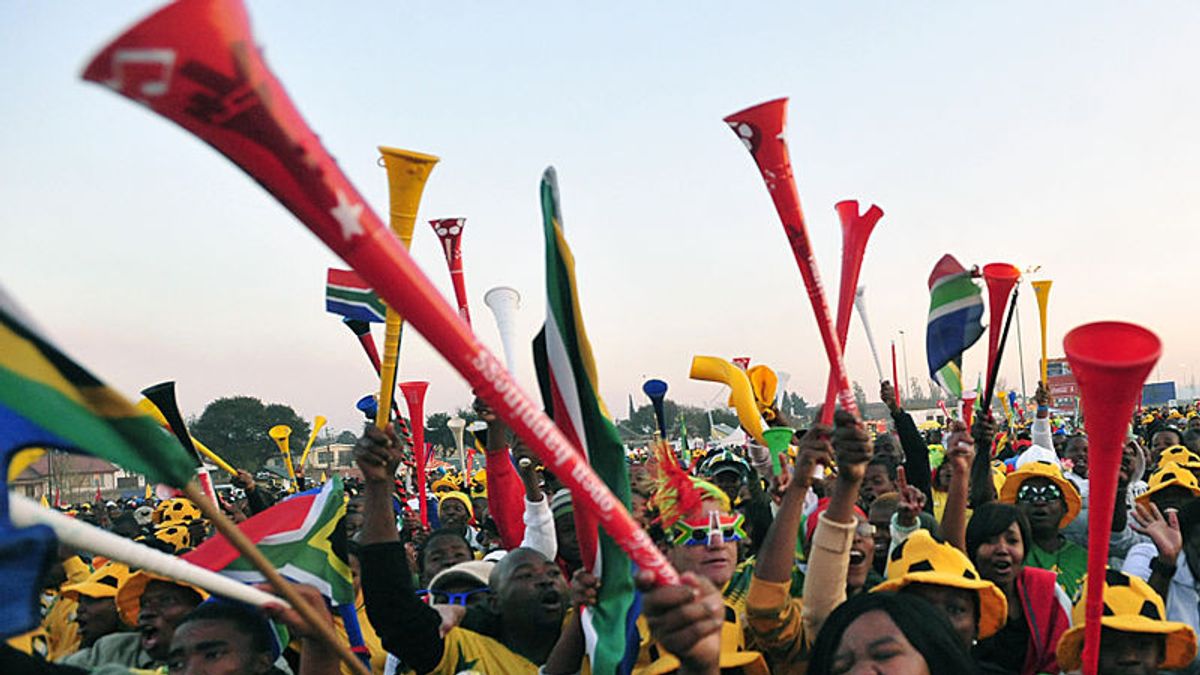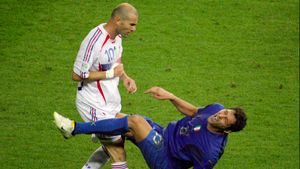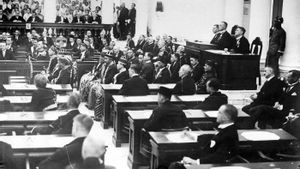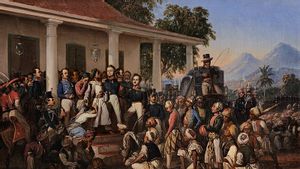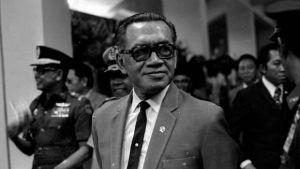JAKARTA - The liveliness of the 2010 World Cup is second to none. The election of South Africa as the host was the reason. Organizing the grand tournament for all the people of South Africa dissolved in excitement.
African cultural trinkets were also prepared. The presence of the vuvuzela trumpet, for example. The sound of the vuvuzela sounds everywhere. Many spectators and players are happy, many are disturbed. However, whatever the power, the vuvuzela is an inseparable part of African football.
Perhaps the vuvuzela is said to be the most annoying musical instrument in the world of football. Football players and spectators are disturbed a lot. But, not for all citizens of South Africa. Vuvuzela has become part of the culture, especially in the growth and development of the South African football industry.
The high voice of the vuvuzela is considered to imply the meaning of people having fun. Moreover, vuvuzela is believed to come from the Zulu language which represents three things: welcome, unite, and celebrate. The narrative is proof that the vuvuzela has been around for a long time.
Vuvuzela was hailed as an inseparable part of the African people. Without his presence, a football tournament of any caliber in Africa would not be crowded. However, no one knows for sure where the vuvuzela was discovered.

Most Africans believe the use of the African trumpet has been used since ancient times. Trumpets are made from animal horns. The trumpet was once used to repel animals, as well as opponents.
There are also those who think that vuvuzela is the work of an African named Freddie Maake in the 1970s. He was inspired by the horn of a bicycle. There was also a desire to make a loud and blaring trumpet like a bicycle horn that brightens up a football match. Vuvuzela, her name.
“The Vuvuzela is a long plastic trumpet described by local newspapers as: a loud and beautiful sound. Although there are many who question the accuracy of the last part of this statement. It was originally made of tin and is thought to have been inspired by curved trumpets. The trumpet was blown to summon partners to the meeting, the 65 cm long vuvuzela is now an integral part of the South African football industry."
“The history and origin of this instrument is unclear. Some have suggested that the vuvuzela is a traditional part of African culture, although this idea is disputed. The appeal of this instrument is even more interesting by saying that a baboon is killed by noise. Therefore, the supporters of their favorite club blow by showing this in an effort to beat the opponent, “said Rob Marsh in the book Africa: Fact, Fiction, Or Fable (2012).
Vuvuzela Protested
Africans consider the sound of the vuvuzela to have a magical power that energizes soccer players. However, this view is not shared by many football players and spectators from outside South Africa.
Protests against the use of vuvuzela spread everywhere. In fact, since the title of the 2010 World Cup predecessor: the 2009 FIFA Confederations Cup in South Africa. The football tournament which took place from June 14-28, 2009 was filled with protests here and there. From spectators to football players.
Some players think the vuvuzela makes them unable to hear each other. The referee's voice, especially. There are also those who say that the vuvuzela does not have a significant contribution to add to the warm atmosphere of the match.
The world football audience was also furious. They thought that because of the vuvuzela the voice of the match commentator was not heard. In fact, the more extreme sound of vuvuzelas is said to be damaging to hearing.

Calls for the International Football Federation (FIFA) to ban the use of vuvuzela in the 2010 World Cup rolling. The effort was appreciated by FIFA. However, FIFA refused to accept the call. FIFA calls the vuvuzela an important part of South African football culture.
Without the vuvuzela the 2010 World Cup celebrations in South Africa would not be as lively. Therefore, the noise of the vuvuzela then continued to fill every match from the preliminary to the 2010 World Cup final. Vuvuzela was only banned at the next World Cup.
"Do you want to see the tradition of fans in your own country banned?," said FIFA President, Sepp Blatter (1998-2015) as quoted by the Mirror page, June 14, 2010.
"I've always said Africa has a different rhythm, a different sound. I don't want to ban the musical traditions of the fans in their own country," Blatter wrote on his Twitter account.
VOIR éGALEMENT:
The English, Chinese, Japanese, Arabic, and French versions are automatically generated by the AI. So there may still be inaccuracies in translating, please always see Indonesian as our main language. (system supported by DigitalSiber.id)
